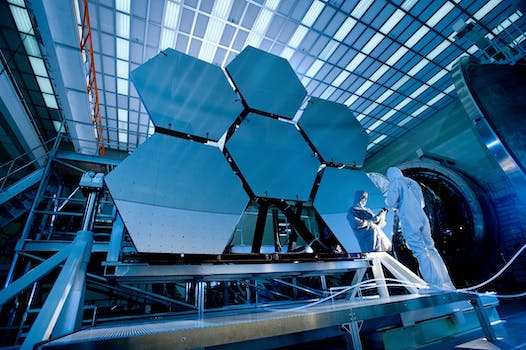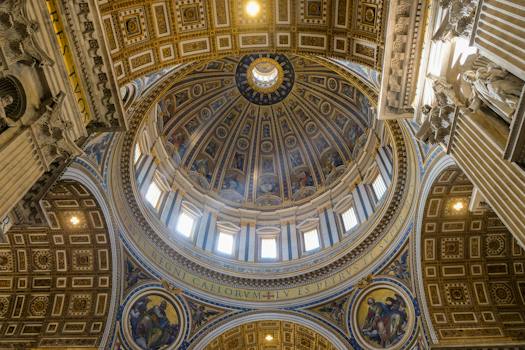

-
Table of Contents
"The Unchanging Argument for a Creator: Bridging Science and Faith in the Modern Age."
Introduction
The Unchanging Argument for a Creator in the Era of Modern Science and Technology explores the ongoing debate surrounding the existence of a higher power in light of advancements in science and technology. Despite the progress made in understanding the natural world, proponents of a creator argue that certain aspects of the universe and life itself cannot be adequately explained by scientific theories alone. This argument posits that the complexity, order, and fine-tuning observed in the universe point towards the existence of an intelligent designer. In this era of scientific and technological advancements, the debate surrounding the existence of a creator continues to captivate the minds of both believers and skeptics alike.
The Role of Intelligent Design in the Modern Scientific Discourse
The Role of Intelligent Design in the Modern Scientific Discourse
In the era of modern science and technology, the argument for a creator remains a topic of great debate. While advancements in scientific knowledge and technological innovation have undoubtedly shaped our understanding of the world, they have not diminished the role of intelligent design in the scientific discourse. In fact, the concept of intelligent design continues to play a significant role in the exploration of the origins and complexities of the universe.
Intelligent design, as a theory, posits that certain features of the natural world are best explained by an intelligent cause rather than an undirected process such as natural selection. Proponents of intelligent design argue that the intricate design and complexity found in living organisms and the universe as a whole cannot be adequately explained by purely naturalistic explanations. They contend that the presence of such complexity points to the existence of an intelligent creator.
One of the key areas where intelligent design has gained traction is in the study of the origin of life. Despite significant advancements in our understanding of the biochemical processes that underpin life, scientists have yet to fully explain how life originated from non-living matter. The complexity of even the simplest living organisms, with their intricate molecular machinery and information-rich DNA, raises questions about the plausibility of purely naturalistic explanations. Intelligent design offers an alternative perspective, suggesting that life's origin may be best explained by the intervention of an intelligent agent.
Moreover, intelligent design has also found a place in the exploration of the fine-tuning of the universe. Scientists have discovered that numerous physical constants and parameters in the universe are precisely set to values that allow for the existence of life. The odds of such fine-tuning occurring by chance alone are astronomically low, leading some scientists to consider the possibility of an intelligent designer. The argument for intelligent design in this context rests on the notion that the intricate balance and precision observed in the universe's fundamental properties point to a deliberate act of creation.
Critics of intelligent design often argue that it is not a scientific theory, as it relies on supernatural explanations that are outside the realm of empirical investigation. They contend that intelligent design lacks testability and falsifiability, two essential criteria for a scientific theory. However, proponents of intelligent design counter that it is a legitimate scientific inquiry, as it seeks to explain empirical observations using the best available evidence. They argue that intelligent design is not inherently religious but rather a scientific inference based on the complexity and organization observed in nature.
In recent years, the debate surrounding intelligent design has become increasingly polarized, with proponents and critics firmly entrenched in their respective positions. However, it is important to recognize that the argument for a creator in the era of modern science and technology is not a new one. Throughout history, humans have sought to understand the origins and purpose of the universe, and the concept of intelligent design has been a recurring theme in this quest for knowledge.
In conclusion, the role of intelligent design in the modern scientific discourse remains a topic of ongoing debate. While advancements in science and technology have undoubtedly shaped our understanding of the world, they have not diminished the argument for a creator. Intelligent design continues to offer an alternative perspective on the origins and complexities of life and the universe, challenging the purely naturalistic explanations put forth by mainstream science. As the pursuit of knowledge continues, the debate surrounding intelligent design will likely persist, reminding us of the enduring human quest to understand our place in the grand tapestry of existence.
Examining the Fine-Tuning Argument for a Creator in Light of Technological Advancements

The Unchanging Argument for a Creator in the Era of Modern Science and Technology
Examining the Fine-Tuning Argument for a Creator in Light of Technological Advancements
In the era of modern science and technology, the debate between believers and skeptics regarding the existence of a creator continues to be a topic of great interest. While advancements in science and technology have provided us with a deeper understanding of the natural world, they have also raised new questions about the origins and purpose of the universe. One argument that has stood the test of time is the fine-tuning argument, which suggests that the intricate design and precise conditions necessary for life to exist point towards the existence of a creator.
The fine-tuning argument asserts that the fundamental constants and physical laws of the universe are precisely calibrated to allow for the emergence of life. Even the slightest deviation in these values would result in a universe that is inhospitable to life as we know it. This argument has gained renewed attention in recent years due to technological advancements that have allowed scientists to explore the vastness of the cosmos and uncover the remarkable complexity of our universe.
One of the key pieces of evidence supporting the fine-tuning argument is the discovery of exoplanets – planets that orbit stars outside our solar system. With the help of powerful telescopes and advanced imaging techniques, scientists have identified thousands of exoplanets, some of which are located within the habitable zone of their respective star systems. The habitable zone is the region around a star where conditions are just right for liquid water to exist, a crucial ingredient for life as we know it. The fact that exoplanets with such precise conditions for life exist suggests that the universe is finely tuned to support the emergence of life.
Furthermore, advancements in cosmology have revealed the remarkable fine-tuning of the initial conditions of the universe. The Big Bang theory, supported by overwhelming evidence, suggests that the universe began from a highly ordered and precisely balanced state. Even the slightest deviation in the initial conditions would have resulted in a universe that either collapsed in on itself or expanded too rapidly for galaxies and stars to form. The fact that the universe began in such a finely tuned state raises profound questions about its origin and purpose.
Critics of the fine-tuning argument often propose alternative explanations, such as the multiverse hypothesis. According to this hypothesis, our universe is just one of many universes that exist, each with its own set of physical laws and constants. In this scenario, it is argued that the existence of a universe capable of supporting life is simply a result of chance, given the vast number of universes that exist. However, the multiverse hypothesis remains speculative and lacks empirical evidence. It also raises the question of why our universe happens to be one that supports life, while the vast majority of hypothetical universes do not.
In conclusion, the fine-tuning argument for a creator continues to hold its ground in the era of modern science and technology. The remarkable precision and complexity of the universe, as revealed by advancements in science and technology, provide compelling evidence for the existence of a creator. While alternative explanations have been proposed, they often lack empirical evidence and fail to address the fundamental question of why our universe is finely tuned for life. As science and technology continue to advance, it is likely that new discoveries will further strengthen the argument for a creator, offering us a deeper understanding of our place in the universe.
Exploring the Compatibility of Faith and Science in the Context of a Creator
The Unchanging Argument for a Creator in the Era of Modern Science and Technology
Exploring the Compatibility of Faith and Science in the Context of a Creator
In the era of modern science and technology, the debate between faith and science continues to captivate the minds of many. While some argue that advancements in science have rendered the concept of a creator obsolete, others maintain that faith and science can coexist harmoniously. This article aims to explore the compatibility of faith and science in the context of a creator, highlighting the unchanging argument that persists despite the advancements of our time.
One of the fundamental tenets of faith is the belief in a higher power, a creator who is responsible for the existence and order of the universe. This belief has been a cornerstone of religious traditions throughout history, providing a sense of purpose and meaning to countless individuals. However, with the rise of scientific discoveries and technological advancements, some have questioned the need for a creator in explaining the workings of the universe.
Science, with its empirical methods and evidence-based approach, has undoubtedly revolutionized our understanding of the natural world. From the theory of evolution to the Big Bang theory, scientific explanations have shed light on the origins and development of life and the universe. Yet, despite these advancements, the argument for a creator remains steadfast.
One of the key reasons for this is the concept of irreducible complexity. This idea, popularized by biochemist Michael Behe, suggests that certain biological systems are too complex to have evolved gradually through natural selection. According to Behe, these systems, such as the bacterial flagellum or the blood clotting cascade, require the simultaneous presence of multiple components to function properly. The existence of such irreducibly complex systems, proponents argue, points to the existence of an intelligent designer or creator.
Moreover, the fine-tuning of the universe is another compelling argument for a creator. Scientists have discovered that the fundamental constants and physical laws of the universe are precisely calibrated to allow for the existence of life. The slightest deviation in these values would render life as we know it impossible. This remarkable fine-tuning has led many to believe that it is not a mere coincidence but rather evidence of a creator who carefully designed the universe to support life.
Furthermore, the concept of consciousness poses a challenge to purely materialistic explanations of the mind. While science has made great strides in understanding the workings of the brain, the nature of consciousness itself remains elusive. The subjective experience of being aware and having thoughts and emotions is difficult to explain solely through physical processes. This has led some to argue that consciousness is a product of a higher, immaterial realm, pointing towards the existence of a creator.
In addition to these arguments, faith provides a unique perspective on the human experience that science alone cannot offer. It addresses questions of morality, purpose, and the existence of evil, offering guidance and solace to individuals grappling with these existential concerns. Science, while invaluable in its pursuit of knowledge, is limited in its ability to provide answers to these profound questions that lie at the core of human existence.
In conclusion, the debate between faith and science in the context of a creator continues to be relevant in the era of modern science and technology. While science has undoubtedly expanded our understanding of the natural world, the unchanging arguments for a creator persist. The concept of irreducible complexity, the fine-tuning of the universe, and the enigma of consciousness all point towards the existence of a higher power. Moreover, faith offers a unique perspective on the human experience, addressing questions that science alone cannot answer. Ultimately, the compatibility of faith and science lies in the recognition that they both contribute to our understanding of the world, each offering valuable insights into different aspects of reality.
Q&A
1. What is the unchanging argument for a creator in the era of modern science and technology?
The unchanging argument for a creator suggests that the complexity and order observed in the universe, as revealed by modern science and technology, point towards the existence of a higher intelligent being or creator.
2. How does modern science and technology relate to the argument for a creator?
Modern science and technology provide us with a deeper understanding of the intricate workings of the universe, revealing complex systems and patterns. This knowledge can reinforce the argument for a creator by highlighting the improbability of such intricate designs arising solely through natural processes.
3. What are some key points supporting the argument for a creator in the era of modern science and technology?
Some key points supporting the argument for a creator include the fine-tuning of the universe's physical constants, the complexity of biological systems, the existence of information-rich DNA, and the origin of life itself. These aspects of the natural world are seen as highly unlikely to have occurred randomly, leading to the inference of an intelligent creator.
Conclusion
In conclusion, the argument for a creator in the era of modern science and technology remains unchanged. Despite advancements in scientific knowledge and technological capabilities, there are still philosophical and metaphysical questions that cannot be fully answered by science alone. The complexity and order observed in the universe, the fine-tuning of physical constants, and the existence of consciousness and moral values continue to raise questions that point towards the existence of a creator. While science and technology provide valuable insights into the workings of the natural world, they do not negate the possibility of a higher power or intelligent designer.












